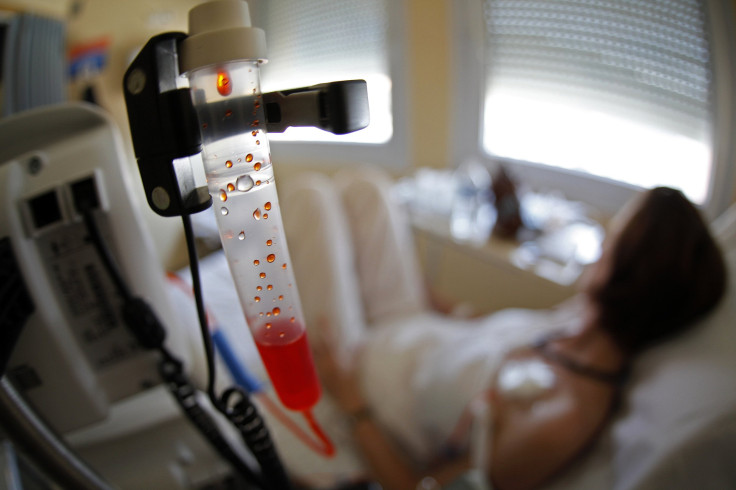End-Stage Chemotherapy May Not Help Quality Of Life In Patients' Final Week: Study

The question of whether chemotherapy, with all its well-known side effects, is a good idea for patients with end-stage cancer is intensely personal -- and the effects near-to-impossible to predict with certainty. But Weill Cornell Medical College researchers who interviewed relatives or caregivers of 312 adult patients with solid tumors that had spread found that chemotherapy either made little difference or resulted in a lower quality of life during a patient's final week.
About half the study's 312 patients opted for chemotherapy, according to the study, results of which were published this week in JAMA Oncology. Researchers at the New York medical facility, who conducted each interview after the patient had died, found that among the most sick patients the decision to have chemotherapy or not made little difference in the perceived quality of life during patients' final week. The interviews were conducted between 2002 and 2008.
However, among relatives and caregivers of the 122 patients with the fewest symptoms, 56 percent of those receiving chemotherapy were reported to have a lower quality of life in their final week. By contrast, only 31 percent of those 122 who did not opt for chemotherapy were reported to have a lower quality of life.
Holly G. Prigerson, director of the Center for Research on End-of-Life Care at Weill and the study's principal investigator, said the “real kicker is it’s the people who are performing well, who are thinking they’re going to benefit, that didn’t,” according to the New York Times.
Medical experts cautioned that the study should not be used to generalize about the relative wisdom of chemotherapy for end-stage cancer patients. For one thing, Michigan oncologist Thomas E. Gribbin, oncology has advanced since the study was conducted.
“Doctors have been learning who not to treat, and I think this captures what we did 10 years ago,” Gribbin said. “A lot of the chemicals we would use today are not necessarily toxic to every organ in your body. And we have improvement in how we manage side effects.”
Further, advice about chemotherapy must be highly individualized.
“Some patients desire to live as long as possible, some people are looking for excellent quality of life all along, and some people want to hang on three months till their daughter’s wedding,” he said.
© Copyright IBTimes 2024. All rights reserved.











